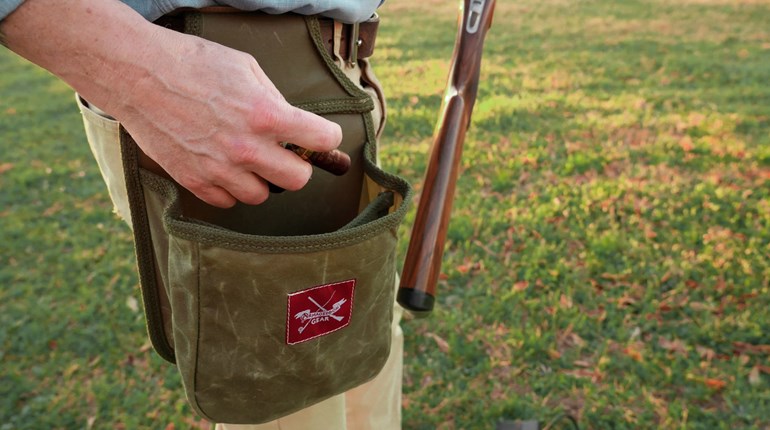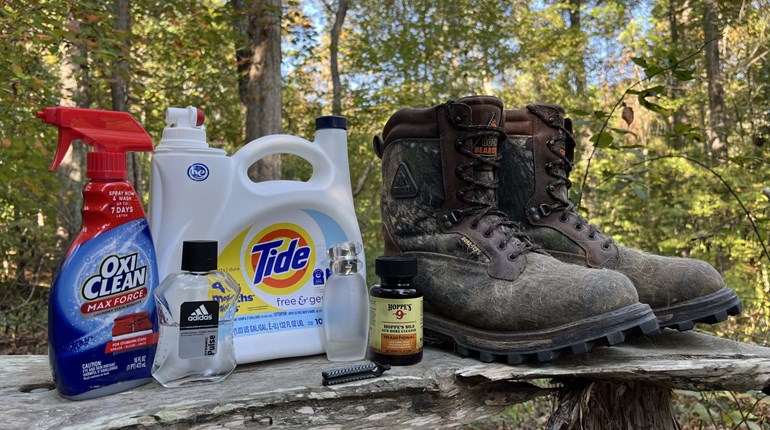
Part of what makes the outdoors so much fun is the element of adventure and surprise nature holds for the participant. In a life where everything is so rigidly laid out and controlled—from the grid of suburban streets and perfectly aligned houses in our neighborhoods, to the suit-and-tie social rules and etiquette followed at the office and in our communities—it’s refreshing to escape to the rawness of the outdoors where trees, plants and brush grow unchecked by the landscapers tools and creatures besides man roam wild and at their own free will.
Let’s face it, there is also an undercurrent of danger and unpredictability in nature that thrills the soul, although most of us still want to hedge our bets and keep our outings on the safer side of things. But still, try as you might, whether it’s simply a hunt not playing as planned or an actual concern for safety, spend enough time outdoors and things are bound to go wrong. Here are a few mishaps I’ve encountered that other sportsmen and women can surely relate to.
Dream Waterfowl Hunt Gone Wrong
This past season I finally got my first opportunity to travel to the famed Stuttgart, Ark., duck hunting capital of the world and home to Mack’s Prairie Wings, the well-known waterfowl (and everything else for that matter) gear retailer. I was jazzed for what I expected to be the waterfowling experience of my life, particularly having grown up along the much more mellow Atlantic Flyway. But of course, my first visit would be at a time when warm weather patterns dominated the entire Midwest and a majority of ducks remained far to the north. I suppose some things are just not meant to be.
While our group limited out on speckled geese in a reservoir on our first day, our next two days of venturing into flooded timber proved to be a total bust. Both days were warm and overcast, a bad mix for timber as the lack of hard shadows, makes it easier for ducks to see when things aren’t quite right. To top it off, a short cut to our duck hole turned into a mad boat ride over logs, around trees and through saplings in 2-foot-deep water that tapered down to a foot and had us dragging boats across old road beds and through stretches of forest. We finally arrived at our hole an hour after shooting light. The next day, despite arriving in darkness to the public land spot, every hole we came to already held hunters. We finally settled on a spot that turned out to be far from where any ducks wished to fly.
Beware Borrowed Waders
On that same trip, I discovered on the first day of hunting that my favorite—and only pair I had with me—waders had a small leak in the back of the right leg, just above where the boot and legging came together. After spending five hours standing in thigh-deep water, the back of my leg was rather damp and cold, but otherwise not as bad as it could have been. Heading into potentially deeper, flooded timber the next day, I asked the owner of the home where I was staying if he had an extra set of waders I could borrow. He did. As it turns out, they leaked worse than mine. Within a minute of climbing into the water, both feet and lower legs were sloshing in icy water. At this point I was actually glad temps remained in the mid 50s for the rest of the day. Five hours later, as my soggy body climbed from the water-filled waders, one of my companions laughed, “Why do you think he wasn’t wearing them?” My host swears he had no idea they leaked, and I believe him. But man, what a miserable morning.
Check Your Licenses
Traveling to Nebraska one winter to hunt public land deer and turkeys with a group of friends of mine, I scoured the state regs online and was sure I had everything I needed. Preparing to leave camp in the dark that first morning to head for a deer stand, I asked one of the guys, almost as an afterthought, to check my license and make sure it was good.
“Where’s your conservation stamp?” he asked, looking over the documents.
“Stamp?” I replied rather dumbly. I had not seen any mention of a stamp on the website. A $15 conservation stamp was required in addition to the license. I put my bow back in the tent, as I would instead be dropping another hunter off before riding to town for a leisurely breakfast as we waited for the sporting goods store to open. Thankfully we at least somewhat salvaged the morning by hunting turkeys once I was legal.
I did the same thing years ago on a Maryland waterfowl hunt when buying licenses online was a new thing. I joined a local hunter there on a duck hunt in the Chesapeake Bay, and we had just set our decoys out front of a rocky outcropping when she asked how I got my license so fast. I told her I went online and just printed it out. Again, it was a stamp—this time the state waterfowl stamp, I had my Federal one—that tripped me up. I never even loaded my gun. I told myself as I drove home early that the hunting would’ve been slow anyway. On another hunt, I drove two hours to a public hunting tract only to realize that I had completely forgotten my license at home. I became the official hunt photographer that day. It stinks when it happens, but there is no shortcut on following the law and having the proper permits. Take my advice: Be sure to check with a local or make an actual call to the game department where you’ll be hunting when traveling to hunt in a new area.
Got Everything?
On that ill-fated Nebraska morning, my friend Mike and I dropped the other hunter off where he was going to deer hunt while we ran to town to get my conservation stamp. In the dark predawn, he rummaged through the back of the truck grabbing his gear and told us he was good to go. More than three hours later, we were talking to another friend who was doing some bird hunting in the area and waiting until it was time to pick the deer hunter up, when we saw him walking down the road.
“What happened?” we asked as the other guy tiredly approached.
“I forgot my bow in the back of the truck,” he replied.
He had tried chasing us down as we drove off, but our talking and the radio had kept us from hearing him. Then he sat there awhile hoping we’d notice it and come back, but we didn’t. Finally, he decided to stow his climber and other gear and made the long walk back to camp. At least when my hunt got messed up that morning, I had the chance to enjoy a hot breakfast!
Watch Your Load on Inclines
I struggled to heft the fat doe onto the rear rack of the four-wheeler, and after finally getting her there, strapped her down so she wouldn’t fall off. Without the benefit of a trail, I then began navigating back through the forest toward the field where it would be smooth travel. But first I had to make it up the only hillside on our property.
The ATV bogged down on the steep incline, and as it came to an exposed root jutting from a tree, I hit the gas. Immediately, the front of the four-wheeler shot straight into the air as the weight of the deer pulled the vehicle backwards. I went flying off and landed on my back where I had just enough time to bring my legs up into a ball as the ATV landed on top of me and then rolled off to the side. The wind had been knocked out of me, and I thought my leg might be broken from the impact.
It’s funny how even though I was the only one there that day, I was more worried about the humiliation of someone seeing me than the actual fact that I had almost just killed myself. I immediately hopped up and looked around, my leg throbbing from where one of the bars on the rack had hit my lower leg. Despite the pain, I quickly righted the ATV, moved the deer to the front where the weight would hold the four-wheeler down as I went up the hill and thanked goodness that nobody actually saw such a display of stupidity—though I’m telling it now so I’m not sure what was gained by that!
Fessup—what are some of your more famous hunting misadventures? Share in the comment section below.




































